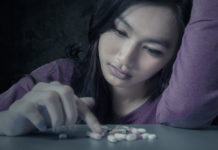How “Mental Health Awareness” Exploits Schoolchildren
Imagine being a parent at a meeting with educators to discuss Johnny's academics or behavior. Suddenly, your child’s teacher is telling you that he needs to see a doctor for an assessment of a suspected “mental disorder,” which usually leads to a prescription for medication. Warned of “the risks against failing to intervene,” you will likely acquiesce.
Childhood Bipolar Disorder, Deconstructed
Diagnosing children with juvenile or pediatric bipolar disorder is largely an American phenomenon. Do we actually have more “bipolar” children in the United States—or are we simply labeling more of them as such? If it is ever fair to call a child “manic,” isn’t the child’s environment the direction in which we should look?
Helping Children With Angry Outbursts
Finnish psychiatrist Ben Furman reviews various non-drug therapies for children with aggressive outbursts of anger, including the Kids' Skills approach that he and social psychologist Tapani Ahola developed. These approaches focus on helping children come up with their own ideas for overcoming their problems with the help of family and friends.
“Virtual Autism” May Explain Explosive Rise in ASD Diagnoses
New clinical case studies have found that many young children who spend too much screen time—on TV’s, video games, tablets and computers—have symptoms labeled as “autism.” When parents take away the screens for a few months the child’s symptoms disappear.
Why Parents Give Amphetamines and Other Risky Psychiatric Drugs to the Children They Love
The stakes are very high when loving parents anxiously sit down across from a child psychiatrist who has completed an ADHD evaluation of their child. All of the parents' high hopes for their precious child's well-being and future happiness are pressing on the parent's heart and mind. The psychiatrist leans to the side, reaches into a drawer, and lifts out a life-size model of a human brain for the parent or parents to see. The little five-year-old sitting on the floor playing stops and looks up at a model of his or her brain as the psychiatrist breaks the bad news. And the question is formed right then in the little boy or little girl's soul that may haunt the child for the rest of their lives – "Why is there something wrong with my brain?"
Amphetamines Have Long-Term Effects on Adolescent Brain, Study Finds
A new study published in the journal Neuroscience finds that rats given regular doses of amphetamines during adolescence have brain and behavioral changes in adulthood....
Madness and the Family, Part III: Practical Methods for Transforming Troubled Family Systems
We are profoundly social beings living not as isolated individuals but as integral members of interdependent social systems—our nuclear family system, and the broader social systems of extended family, peers, our community and the broader society. Therefore, psychosis and other forms of human distress often deemed “mental illness” are best seen not so much as something intrinsically “wrong” or “diseased” within the particular individual who is most exhibiting that distress, but rather as systemic problems that are merely being channeled through this individual.
You, Your Kids, or the Doctor… Who’s Running the Show?
Let’s face it, as our kids slowly developing brains wrestle with behavioral and maturity issues while also trying to juggle expectations related to academic and social challenges, some of the behaviors they display can be quite concerning. Understandably, after trying what seems like everything in the books plus the kitchen, bathroom and laundry room sinks, caring and often exhausted parents are actively looking for help, resources and answers. But guess what? Without any need for pharmaceutical intervention or “drug therapy,” for centuries parents have been quite capable of helping challenged children overcome semi-annoying and concerning behaviors that some “experts” want to label today as symptoms of a mental disorder. Behaviors that a billion kids worldwide display every day.
Majority of Youth Prescribed Antipsychotics Have No Psychiatric Diagnosis
The majority of children, adolescents and young adults prescribed antipsychotic medications have not been diagnosed with a mental disorder, according to a recent study published in JAMA Psychiatry.
One Family’s Encounter with Modern Psychiatry and a Call for Social Change
Asking the psychiatrist to discontinue medication was one of our bravest moments. It went against everything doctors had told us over the past twelve months—against Rebecka’s regular psychiatrist’s vehement opposition (“You can come back when it doesn’t work.”). It went against what we heard repeatedly in the media and in pop culture. It went against what we saw in the advertisements during the evening news. And it was the turning point in Rebecka’s journey toward optimal mental health.
Reflections on a Pathologized Adolescence and a Vision for the Future
My heart envisions a future of grassroots community-based, free, accessible, welcoming, non-judgmental and safe spaces for young people in the middle of the hurricane of adolescence....They will be spaces facilitated by those of us who’ve reclaimed what it means to be human.














